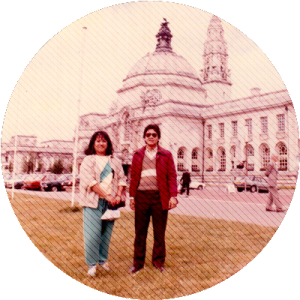Dok Jimmy is, paraphrasing from the steel-magnate Lakshmi Mittal, a citizen of the world. He is a Filipino who has not hesitated to share what insights and values he has gained from a lifelong fruitful learning to both hemispheres. He has been in the five habitable continents of the world, trotting the world as invited guest, as representative of the country, as speaker, as distinguished member, as part of the board, as consultant, as educator.
A product of world-class and international education, Dok Jimmy is a Fellow of the Bill & Melinda Gates Strategic Leadership and Management of Population and Reproductive Health of Johns Hopskins Bloomberg School of Public Health in Baltimore and an alumnus of Prince Leopold Institute of Tropical Medicine in Antwerp, Belgium (where he received his Master in Public Health, with honors).
He, has indeed, as that AIM speaker declared him to be, been almost everywhere but space. The same “Introduction to the Speaker” speech adds weight to this premise. It mentioned, “He acts as consultant to WHO, UNICEF, UNDP, UNFPA, ILO, World Bank, Asian Development Bank, AUSAID, JICA and USAID, bringing him to Europe, Asia, the Pacific, Africa, Latin America, Canada, USA, Australia, New Zealand, Kazakhstan and Russia.” Doubtless the enumeration has not been updated since January of 2013 when that conference was done (no, Mars is still not included).
Despite the travels all over the world, he sees to it that he returns home to share and apply what he learned in foreign trips in addressing the country’s problems. It is, in fact, a reciprocal engagement. Each of this country offers Dok Jimmy profound insights to diverse issues that do not consider geographical boundaries or artificial classifications: diseases like lymphatic filariasis, gender discrimination, malnutrition, poor maternal and child health, inaccessibility of medicines and many more.
An “old” curriculum vitae (last updated on 2005) lists “Countries of Consultancy Work”, finds in alphabetical order— Australia, Bangladesh, Belgium, Bolivia, Cambodia, China, Egypt, Italy, India, Indonesia, Ireland, France, Germany, Ghana, Kazakhstan, Kenya, Kiribati, Laos, Malaysia, Myanmar, Nepal, the Netherlands, North Korea, Papua New Guinea, South Korea, Spain, Sri Lanka, Switzerland, Tanzania, Thailand, Turkey, the United Kingdom, the United States of America and Vietnam. Early in his career, he has been active in international engagements as a consultant of UNICEF and UNDP. His work brought him to Netherlands, West Germany (Germany has not even been reunited then!), Bolivia, China, Cambodia, Turkey and the Kiribati Islands. In between these countries, he would be in Basilan, Samar and Manila, facilitating community-based health programs or joining in expert panels for policy formation. Later on, he would join a host of international aid organizations in line with his expertise on health policy development, health planning and health systems development. Borrowing from the same source and just before the “Countries of Consultancy Work” list, we read a dozen sub-themes of health research.
More recently and in less than a year, Dok has become the Research Institute for Humanity and Nature’s Visiting Research Fellow, spending three months in Japan, starting his tenure with the Cherry Blossoms (which he tells us has only witnessed once, despite his more than 30 trips in the country). There, he has lectured in three cities, among professors in the prolific and novel transdisciplinary field of Ecohealth (the integration of environmental science and health sciences). He had visited Kunming, China to attend an international conference on the same field (as one of the country’s foremost expert), as well as Malaysia. In Vietnam, he provided a comparison of the country and Philippines’ health systems as one of our preeminent expert in health development (indeed, just last year, he was awarded as one of our country’s Eminent Filipino Physician). Before spending his 65th birthday, he was in Myanmar.
His collection of more than half a dozen passports would attest to his sojourns, as do his pasalubongs. From the easily-tampered passport the DFA released to the ones with modern security features, his collection merits exhibition in DFA museum. One of his passports even had expanded with a concertina- folded refill. His active passport is on its last few pages. His Japan trip brought with him a box of Kitkat Matcha Green Tea flavour (a change from the only four flavors of the chocolate wafer in the Philippines, in contrast to the more than 15 varieties of Japan).
The irony of this nationalistic globetrotter is admirable. Dok Jimmy harmonizes the oxymoron in “global citizen”, a world class consultant who strives to internationalize the Filipino experience, thought-provoking and insightful far and near. The introductory speaker was wise in his retort, he has been everywhere. Finding, though, that the struggle for a more health- equitable world is far from settled and how the Philippines can still learn so much from our neighbors, it would not be far-fetched to await the application for another passport.
In a few months’ time, he will be off to South Korea to give a presentation on community-based health sciences education. Sure enough, the teaching and learning continue.
